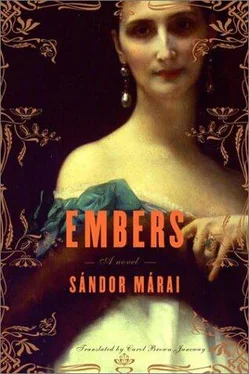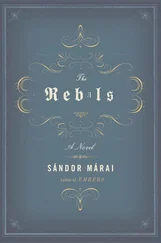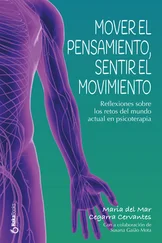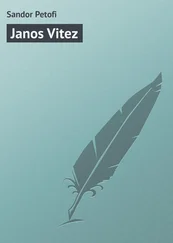You did not owe me any money, you lived in my house like a member of the family, who could imagine you would do such a thing? No one. What cause would you have to murder me?
Who could be inhuman enough to imagine that you, my friend-of-friends, would kill me, your friend-of- friends, when you could ask anything in life of me, receive anything you needed by way of psychological or material support, treat my house as yours, my fortune as yours to share, my family as your second family?
“Any accusation would have rebounded on whoever made it; the world would have punished it as a piece of insolence, and then rushed to comfort you again.
“That is how things stood. And yet you didn’t fire. Why? What happened in that moment? Was it just that the deer sensed the danger and fled, whereas human nature is constructed in such a way that when we have to accomplish some action that is utterly abnormal, we need some objective pretext? Your plan was the right one, it was both precise and perfect, but perhaps it required the presence of the deer; the scene had come apart, and you let your gun drop. It was a matter of fractions of a second; who could divide everything up into its constituent parts, see them separately and make a judgment? And it’s really not important. The fact is what matters, even if it would not determine a trial. You wanted to kill me, and when something unanticipated disrupted the moment, your hand began to tremble and you didn’t do it. The deer was already out of sight between the trees, we didn’t move, I didn’t turn around. We stood like that for some seconds. If I had looked you in the face just then, I might have seen it all. But I didn’t dare. There’s a feeling of shame that is more painful than any other in life; it’s the shame felt by the victim who is forced to look his killer in the eyes, as if he were the creature bowing before its creator. That’s why I didn’t look at you, and as the paralysis left us, I started to walk across the clearing toward the top of the hill. You started mechanically to move behind me. As we went, without turning around, I said, ‘ missed your shot.”
“You didn’t say a word, and your silence was its own admission. At times like that, anyone would start talking, either ashamed or worked up, trying to explain himself, making jokes or sounding insulted: every huntsman wants to prove that he was right, that the animal was a poor specimen, that the distance was too great, that the shot was too risky.
..but you said nothing. And your silence meant, ‘, I missed the shot that should have killed you.’ We reached the top of the hill without a word being exchanged. The gamekeeper was already up there with the dogs, the valley was echoing with shots, the hunt had begun. Our paths separated. When midday came and it was time to eat-a table and food for the huntsmen had been set up under the trees-your beater told me you had left for town.”
The guest picks up another cigar. His hands betray no tremor, he calmly cuts the tip. The General leans forward, holding a candle, to light it for him.
“Thank you,” says the guest. “But that evening, you came to dinner,”
says the General. “As you always did, every evening. You came at the usual time, seven-thirty, in the carriage. And as on so many evenings we dined ŕ trois with Krisztina.
“The table was laid in the great dining room, as it was tonight, and with the same ornamental figures, and Krisztina sat between us. There were blue candles burning. She liked candlelight, she liked everything that echoed tradition, and times past, and a nobler form of human discourse. After the hunt was over, I had gone directly to my rooms to change, and had not seen Krisztina that afternoon. The manservant had told me that she had left after luncheon for town. As I came into the room, Krisztina was sitting in front of the fireplace with a light Indian shawl around her shoulders, for the weather was misty and damp. A fire had been lit; she was reading and did not hear me. Perhaps the rugs absorbed the sound of my footsteps, perhaps she was simply too absorbed in the text-it was an English book, a traveler’s description of the tropics-but in any case she did not become aware of me until I was standing right in front of her. Then she looked up-do you remember her eyes? She had a way of looking up that turned the world to brilliant daylight-and maybe it was the effect of the candlelight, but I was shocked by her pallor. ‘ you feeling unwell?’ I asked her. She said nothing. She stared at me for a long moment, wide-eyed, and those seconds were almost as drawn out and as eloquent as the moments that morning in the forest when I stood still, waiting to see whether you would say something or squeeze the trigger. She scrutinized my face as if her life depended on finding out what I was thinking if I was thinking … if there was something I knew … At that moment, knowledge was more important than life itself. The thing that is always the most important-more important than the outcome, more important than the prey-is to know what the creature we have chosen as our victim thinks of us … She looked into my eyes as if she were conducting an interrogation. I believe I returned her gaze steadily. During those seconds, and later, I was calm, and my face betrayed nothing to her.
Indeed, during that morning and afternoon, on that strange hunt in which I had become the game, I had struggled to reach the decision that, no matter what life brought, I would remain silent and I would never, ever, speak either to Krisztina or to Nini, the two people who were my confidantes, of what I had been forced to realize in the dawn out in the woods. I had also decided to have a doctor observe you as unobtrusively as possible, since some demon of insanity seemed to have taken hold of your brain. I could think of no other explanation. The man closest to my heart has gone mad, is what I kept repeating to myself, constantly, obstinately, despairingly, all morning, all afternoon, and that is how I saw you when you came in. I was trying to preserve human dignity in general and yours in particular, for if you were the master of your faculties and had a reason-no matter what it was-to take up a weapon against me, then every one of us who lived in this house had lost our human dignity, including Krisztina and myself. That is also how I interpreted the look of shock and astonishment in Krisztina’s eyes when I stood before her after the hunt. That she intuited the secret that had bound you and me since the morning.
“Women sense these things, I thought. Then you come, in evening dress, and we go in to table. We chat as we did on other evenings. We talk about the hunt, about the beaters’ report, about the error made by one of the huntsmen who had shot a buck he had no right to shoot … but we do not say a single word all evening about those strange, questionable seconds. You do not mention your own hunting adventure with the magnificent deer you failed to kill. Such a story requires a telling, even when one is less than an expert huntsman. You don’t say a word about missing the game and leaving the hunt early without explanation and going back o town, not to reappear until evening, although it is all very irregular and a breach of etiquette. You could mention the morning in a single word … but you don’t. It’s as if we had not gone on the hunt at all. You talk about other things. You ask Krisztina what she was reading as you came into the salon to join us. You and she have a long discussion about it, you ask Krisztina what the title is, you want to know what impression she has of the text, you have her tell you what life in the tropics is like, you behave as if this subject matter is of burning interest to you-and it is not until later that I learn from the bookseller in town that this book and others on the same subject were ordered by you, and that you had lent it to Krisztina a few days before.
Читать дальше












